Bloodseeker Non-Trash Guide
Sando
May 3, 2014
Introduction
 Bloodseeker is an agility ganker/carry with some very strong skills and a bad reputation. He's considered "trash-tier" amongst the pro-players as his playstyle has limited potential at that skill level. However, he can be extremely effective in particular situations, and there are ways of playing him that make him much more useful than the average pub stomper.
Bloodseeker is an agility ganker/carry with some very strong skills and a bad reputation. He's considered "trash-tier" amongst the pro-players as his playstyle has limited potential at that skill level. However, he can be extremely effective in particular situations, and there are ways of playing him that make him much more useful than the average pub stomper.
This guide is something of an attempt to rehabilitate him into a hero that above average pub players will considering picking...as you've probably already noticed, there is plenty of non-standard stuff in my build suggestions...
Strengths and Weaknesses
+ Strong sustain when laning
+ High starting stats
+ Strong agility gain and damage buff
+ Vicious ultimate with HP removal
+ Long 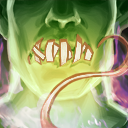 Silence
Silence
+ Provides almost global vision of weakened enemies
+ Can provide true sight of low health enemies
+ Great chaser
- Moderate strength gain leaves him vulnerable to burst damage
- Lacks a stun for effective ganking
- Usually needs to snowball to outcarry
- Needs enemies to die in order to sustain in team fights
- Limited mana pool
- Item dependent
Blood Bath
Blood Bath
This passive skill is what gives  Bloodseeker his lane presence and sustainability in fights. I'd say this skill is his biggest strength, but also his biggest weakness.
Bloodseeker his lane presence and sustainability in fights. I'd say this skill is his biggest strength, but also his biggest weakness.
On the plus side, you can absolutely dominate a lane where your opponent(s) can't out hit or kill you. Even if they're landing a lot of light harassment it really does very little if you can constantly be healing from killing creeps. Even at level 1, killing a melee creep will heal you for 55 health, 82.5 at level 2, etc.
Please note, YOU REGEN FROM DENYING, so it's really important to kill EVERYTHING in the lane if you possibly can.
As you can imagine, against some heroes this makes you incredibly hard to play against - you out hit them on every single creep, and absorb every bit of farm and experience in the lane.
It also explains your starting items - the  Stout Shield/
Stout Shield/ Quelling Blade combo is to minimise harassment and maximise your last hitting ability. Moving quickly up to
Quelling Blade combo is to minimise harassment and maximise your last hitting ability. Moving quickly up to  Poor Man's Shield enhances both further.
Poor Man's Shield enhances both further.
Ok, so over to the bad side. This skill relies on last hitting creeps, or at least being in close proximity for hero kills. This means that you have to put yourself in dangerous situations in order to use it...and with your relatively squishy strength growth this isn't always ideal.
 Bloodseeker is very reliant on this to keep him alive - being near a big tanky enemy when they die can completely refill your health pool from near zero (heal is based on their Maximum HP). However...what if they just managed to get that wand charge off in time and delay it for a second or two?
Bloodseeker is very reliant on this to keep him alive - being near a big tanky enemy when they die can completely refill your health pool from near zero (heal is based on their Maximum HP). However...what if they just managed to get that wand charge off in time and delay it for a second or two?
The same applies in lane - being able to sustain from last hits is great, but it's no use at all if you get jumped on and burst down.
Rupture
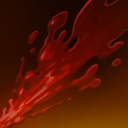
Your ultimate is greatly feared by noobs everywhere...and generally mocked by more experienced players. After a recent buff, it now inflicts HP Removal damage - meaning that magic immunity/resistance offers no protection against it's effects.
It deals an initial burst of damage, and then inflicts considerable further damage every time the target moves during the duration. There is an exception to this - transport spells and items that allow you to move more than 1300 units in 0.25 seconds are not effected.
Any player worth their salt won't move during  Rupture if they can possibly avoid it -
Rupture if they can possibly avoid it -  Force Staff or abilities like Blazing Lasso can be fatal here. Combined with your Blood Rage you can also lock down transport abilities and
Force Staff or abilities like Blazing Lasso can be fatal here. Combined with your Blood Rage you can also lock down transport abilities and  Blink Dagger too (due to the constant damage). A silenced, immobile enemy should be easy meat right?
Blink Dagger too (due to the constant damage). A silenced, immobile enemy should be easy meat right?
Well, theoretically. First of all, you've got to be able to do enough damage to actually kill them before the effects run out. Secondly, your most dreaded opponent, the nemesis who leaves you stood howling in frustration...the  Town Portal Scroll.
Town Portal Scroll.
You don't have a stun. You don't have a mini-stun. Your  Silence doesn't block item use. They can just teleport away. This is the main reason
Silence doesn't block item use. They can just teleport away. This is the main reason  Bloodseeker is considered a trash hero.
Bloodseeker is considered a trash hero.
However, there are ways around this issue. First of all...gank with your allies. Even a mini-stun will do the job and allow you to finish your prey. Secondly, consider a  Eul's Scepter of Divinity. Although it isn't strictly the kind of item you want to see on an agility carry, it does the job of breaking their teleport and can net you kills.
Eul's Scepter of Divinity. Although it isn't strictly the kind of item you want to see on an agility carry, it does the job of breaking their teleport and can net you kills.
 Rupture also has some uses in team fights - melee carries should be your primary target. Cast it early and they'll be unable to move to engage your heroes without taking considerable damage and will have to wait up to 9 seconds for it to run out, even if they have a
Rupture also has some uses in team fights - melee carries should be your primary target. Cast it early and they'll be unable to move to engage your heroes without taking considerable damage and will have to wait up to 9 seconds for it to run out, even if they have a  Black King Bar. Ignore them, kill their allies, then gang up on them.
Black King Bar. Ignore them, kill their allies, then gang up on them.
Role
 Bloodseeker has a somewhat nebulous role - not really a full carry, but not an out and out ganker either. I'd call him a snowball carry. He needs to farm and level early on, and then needs to start getting kills as soon as he hits level 6. Farm, kill, farm, kill - rinse and repeat. You should be looking to get kills to supplement your farm and weaken the opposition.
Bloodseeker has a somewhat nebulous role - not really a full carry, but not an out and out ganker either. I'd call him a snowball carry. He needs to farm and level early on, and then needs to start getting kills as soon as he hits level 6. Farm, kill, farm, kill - rinse and repeat. You should be looking to get kills to supplement your farm and weaken the opposition.
 Bloodseeker is hella-scary if he can stay ahead of the curve (in terms of farm/xp) and can seem massively OP in these situations. With good farm and levels he can soak up enough damage to secure kills, regenerate and keep diving everything in sight. Even late game he's still very effective with the damage scaling from
Bloodseeker is hella-scary if he can stay ahead of the curve (in terms of farm/xp) and can seem massively OP in these situations. With good farm and levels he can soak up enough damage to secure kills, regenerate and keep diving everything in sight. Even late game he's still very effective with the damage scaling from 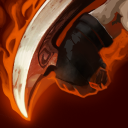 Bloodrage.
Bloodrage.
However, if you fall behind the curve, you can be outcarried by most mainstream carries and will struggle to do enough to make an impact at team fights. You're also vulnerable to teams who can disable/focus you effectively.
The need for early and continious farm will generally leave you as a #1 or #2, regardless of where you lane.
Laning Options
 Bloodseeker has a reasonable variety of laning options, but the biggest consideration is usually which enemy hero(es) you'll be up against.
Bloodseeker has a reasonable variety of laning options, but the biggest consideration is usually which enemy hero(es) you'll be up against.
Mid is a great lane for you if you're not countered by your opponent, allowing quick access to farm, level 6, and a chance to minimise their mid. Unfortunately a lot of common mids can dominate you, and you have to be very careful about burst damage.
Safe lane carry is another option, but this usually locks you into the #1 role, and slows your levelling. You really need to level quickly to get your 6 and begin snowballing, so trilanes are not a great option for you unless your supports can secure plenty of kills. Generally you can solo effectively with the right opponent.
Offlane is generally not considered a good option - you have no escape and are relatively squishy. It's just about viable if you're up against the right solo hero or a very weak dual lane.
Many people consider  Bloodseeker a jungler, but I don't especially like this. Yes, he can jungle, but not terribly efficiently, and your health will also get very low at times. It can also encourage bad
Bloodseeker a jungler, but I don't especially like this. Yes, he can jungle, but not terribly efficiently, and your health will also get very low at times. It can also encourage bad  Hand of Midas builds that simply don't work on a snowball hero.
Hand of Midas builds that simply don't work on a snowball hero.
As you can see, the phrase that keeps coming up over and over again is "against the right" opponent. We'll be looking at this in more detail later.
Items
Starting:



This is  Bloodseeker's default starting kit for pretty much every build and lane - it minimises physical harassment and lets you last hit/deny very effectively. If this combined with Blood Bath isn't enough sustain, you picked the wrong lane.
Bloodseeker's default starting kit for pretty much every build and lane - it minimises physical harassment and lets you last hit/deny very effectively. If this combined with Blood Bath isn't enough sustain, you picked the wrong lane.
Core:


These items are also pretty standard on him - the
 Poor Man's Shield
Poor Man's Shield is a useful way of boosting your damage/agility early on, and also increases your damage block to 100%.
Although some people have looked at
 Phase Boots
Phase Boots on him, they're generally unnecessary if you're getting the boost from
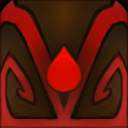 Thirst
Thirst.
 Power Treads
Power Treads are more flexible, giving you the option of tanking up, increasing your damage, or finding that bit of extra mana for a spell.
Extension Options:




There is a fair bit of flexibility on your next item choices, including some of the more unusual ones listed below.
 Bloodseeker
Bloodseeker has several problems he needs to address with items in order to make himself effective.
He needs more chasing ability, magic immunity, hit points, mana, damage/agility, oh and a stun would be nice. Yeah, you need to make some hard choices here!
Generally I'd start out with something to round out your stats more, giving you more hitpoints and damage. This allows you to get involved in dangerous situations, and hopefully get out of them with some kills too.
 Drum of Endurance
Drum of Endurance is a good solid allrounder - giving you 9 of every stat, with some bonus damage and speed too. It's rarely a bad option, but you may prefer getting one of the others instead, and you'll want it first or not at all.
 Black King Bar
Black King Bar - an expensive item, but a necessity against most teams. Especially useful if there's a lot of team fights or heroes with disables. Remember to
 Bloodrage
Bloodrage yourself before using later on!
 Sange and Yasha
Sange and Yasha - still considered a "noob" item by many, it has been considerably improved by recent patches and works well on chasing heroes. It gives you something of almost everything - speed, damage and hitpoints. The passive maim from
 Sange
Sange is also handy for your chasing style. Later on you can potentially upgrade this to a
 Manta Style
Manta Style and
 Heaven's Halberd
Heaven's Halberd.
 Eul's Scepter of Divinity
Eul's Scepter of Divinity - a whhaaa? Actually a great item on him. The intelligence gain and mana regen is actually pretty handy, even if isn't usually the first thing you'd buy. The bonus movement speed is great, but
most important is that it finally gives you a way of breaking teleports.
Other Options:





Ok here's some more unusual item choices, please at least consider them before writing them off. Some of them would usually come before or after various extension options - it all depends on how you're building him.
 Armlet of Mordiggian
Armlet of Mordiggian - ok he's not a strength hero, but he still gets many of the benefits, plenty of extra damage and the big hitpoint boost. It can help you farm faster with no negative effects thanks to Blood Bath, and give you extra time and health to play with during fights. I would consider some conventional lifesteal to go with it though.
 Force Staff
Force Staff - seen sometimes on pubbers, this is an OK choice. More intelligence, but more importantly the ability to FORCE enemies to move while under the effects of
 Rupture
Rupture. It can also help when cutting corners to chase - with your improved movement speed about the only thing that will escape you are enemies who can use terrain to block pursuit. This item mostly alleviates the issue.
 Medallion of Courage
Medallion of Courage - although armour is not strictly what you need to improve your survivability, the mana regeneration is nice, and more importantly it will help you pickup kills and farm the jungle faster. Get after treads or don't bother.
 Vladmir's Offering
Vladmir's Offering - lifesteal on a
 Bloodseeker
Bloodseeker? Heresy! You've got Blood Bath already, what more do you want? Ok, so this isn't an item you're going to pick up until later on, but it is well worth considering.
With your
 Bloodrage
Bloodrage buff you have significant right click damage, but you're totally reliant on being near dying heroes to heal. As we've already discussed, this is distinctly risky for a number of reasons. Lifesteal means that all your survivability eggs aren't in the same basket.
 Skull Basher
Skull Basher - a nice upgrade to your damage and hitpoints, with the chance of a stun thrown in. Theoretically this has a good chance of preventing enemies from teleporting away if you get multiple hits in during their channelling time...unfortunately 4 x 25% may sound like good odds, but it's in no way reliable.
Luxuries:
I'm not going to talk too much about luxuries here - most of the options are pretty common agility carry ones. You'll already have tons of armour and attack speed from your high agility gain, so stack on the damage and any extra survivability you need.
Bad Enemies
This is an unfortunately long list in places, some are just unpleasant to lane against directly, others can cause you real problems throughout the game. As always, this does depend on how it's played out, but it's well worth being aware of.










You don't want to go 1v1 with these heroes, they'll do bad things to your sustain and force you into passivity through the threat of their burst damage. As a snowball hero this is VERY VERY BAD. You may well be effective against them later, but don't want a direct matchup.

Uh, bad times. His 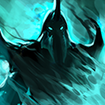 Borrowed Time can actually end up making
Borrowed Time can actually end up making  Rupture into a heal, simply don't cast it on him unless you're 100% sure it's on cooldown.
Rupture into a heal, simply don't cast it on him unless you're 100% sure it's on cooldown.


 Soul Keeper
Soul Keeper
While you're extremely capable of taking these heroes on ( Thirst can be especially useful against
Thirst can be especially useful against  Phantom Lancer), you're extremely single target focused, and illusions provide no healing.
Phantom Lancer), you're extremely single target focused, and illusions provide no healing.




Big tough heroes who can fight can cause you problems and a dilemma - they can already man-fight well, do you  Bloodrage them and give them extra damage? Can you beat them in a straight fight if they don't move?
Bloodrage them and give them extra damage? Can you beat them in a straight fight if they don't move?

I hate you, nemesis.
Final Thoughts
Hopefully this guide has given you a better understanding of how  Bloodseeker works, the situations where he can be useful, and the things he really needs to avoid.
Bloodseeker works, the situations where he can be useful, and the things he really needs to avoid.
Picking a  Bloodseeker is always somewhat risky as he'll be at least your #2 hero and his success in the mid-late game is very dependent on a successful early game. He doesn't recover very well from fallow periods, and needs items to be successful in team fights.
Bloodseeker is always somewhat risky as he'll be at least your #2 hero and his success in the mid-late game is very dependent on a successful early game. He doesn't recover very well from fallow periods, and needs items to be successful in team fights.
You can probably also see why he's avoided in pro games - he generally wants to be able to gank lone heroes, and will usually need to bring a support with him to do so until he's got a fair bit of gold together, or spots a hero without a TP scroll.
 Thirst can be incredibly powerful, especially with multiple stacks, but does rely somewhat on enemies making mistakes with their health or being forced into that situation by your allies. He's not really a tri-lane hero.
Thirst can be incredibly powerful, especially with multiple stacks, but does rely somewhat on enemies making mistakes with their health or being forced into that situation by your allies. He's not really a tri-lane hero.
To counter balance this, he can be extremely powerful in the right situations - he can dominate lanes, snowball hard, and heal his entire pool multiple times in a single fight.
I think after his recent buffs,  Bloodseeker should be getting more attention from both players and theory crafters - he does have a role, even if it's a situational one. I think his standard item choices also need a good looking at - I don't rate the
Bloodseeker should be getting more attention from both players and theory crafters - he does have a role, even if it's a situational one. I think his standard item choices also need a good looking at - I don't rate the  Radiance builds much (no health, no early ganking power), and people seem to build the standard items but still play to his weaknesses by ganking without stuns.
Radiance builds much (no health, no early ganking power), and people seem to build the standard items but still play to his weaknesses by ganking without stuns.
Personally I've had success with the PMS/Treads/Eul's build (followed up with more health/agility/bkb), as breaking people's TP channel also tends to break their relaxed attitude to dealing with a  Bloodseeker gank. The movement speed is also a plus, as is the mana recovery.
Bloodseeker gank. The movement speed is also a plus, as is the mana recovery.
 Tango
Tango





































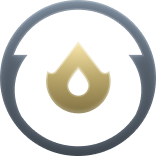











Quick Comment (19) View Comments
You need to log in before commenting.